|
Did you know that one of the reasons Black History Month sits in February is because President Abraham Lincoln’s birthday also sits in this month? Founded in 1926 as “Negro History Week,” this annual celebration was set to take place during the second week of February because President Lincoln’s birthday was February 12th and Frederick Douglass’s birthday was on February 14th. Both of these birthdays held significance in Black communities’ due to the work of Douglass and Lincoln signing the Emancipation Proclamation freeing African Americans from slavery. Another lesser-known fact -- Frederick Douglass was the first African American to run for president. While the origins on Black History Month and its ties these birthdays hold significance, there are many more strides in Black History to celebrate on this day. Today, we focus on pioneer, Shirley Chisholm.
Born in Brooklyn, New York, Chisholm was the oldest daughter of Charles and Ruby St. Hill. A talented debater, her professors at Brooklyn College encouraged her to consider a political career but she showed hesitance. Chisholm knew she’s faced challenges among the nation’s political leaders. She didn’t look like them. She was a double minority – a black woman.
Today, we know of many double minorities who have strived to and succeeded in opportunities that aren’t easy to achieve. We have shared the stories of Janet Collins, the first Black prima ballerina to perform at The Met and the brave Bessie Coleman who had to leave the country in order to earn her pilot’s license. Like these two prolific women, Shirley Chisholm knew how hard the road would be ahead of her. After initially working as a school teacher, Chisholm joined local chapters of the League of Women Voters, the NAACP, Democratic Party club and Urban League. In 1964, she ran for and became the second African American in the New York State Legislature followed by her winning a seat in Congress in 1968 – the first African American woman to do so. During her tenure, Chisholm introduced more than 50 pieces of legislation and championed racial and gender equality and fighting to end the Vietnam War. During her time as a congresswoman, Chisholm co-founded the National Women’s Political Caucus, helped form the Black Caucus and became the first Black woman and second woman to ever serve on the House Rules Committee.
With all of her accomplishments, when Chisholm decided to run for the Democratic Party’s presidential nomination, much discrimination followed. She was blocked from participating in televised primary debates to which she had to take legal action resulting in her just making one speech. Chisholm retired from Congress in 1983 after serving seven terms. Upon retirement from her political roles, Chilholm turned her focus back to teaching but this time at Mount Holyoke College. See below to learn more about the significance of Chisholm's legacy.
1 Comment
As Told By: Dr. Wanda Patrick, PhD To kick off Black History Month, Weaver Union School District invited Sweet Blackberry to educate their elementary and middle school students on the importance of Black History. Elementary school students screened Sweet Blackberry's newest film 'Flying High: The Bessie Coleman Story.' The school system also gifted their students with Sweet Blackberry Founder, Karyn Parson's debut novel, 'How High The Moon.' Dr. Wanda Patrick, shares insights to this delightful visit. February is Black History Month; what better way to celebrate literacy than have the founder of Sweet Blackberry address the students at Weaver Union School District. Karyn arrived at the middle school, Monday, February 3rd, eager to share her experience as the author of How High the Moon. 996 extremely eager and excited middle school students wanted to know what it was like to be an author and if it was difficult to balance a career and a family. Of course, many students wanted to take a photo with Karyn. A really excited young author met Karyn one on one getting encouragement to continue writing and to never stop. Monday was a long day for Karyn. She accepted a proclamation from the city of Merced along with the NAACP for their work accomplished at the Multicultural Arts Center for Black History Month (photo below). Karyn spoke to the city council about Sweet Blackberry’s mission and why she was in Merced. There was a dinner in her honor attended by the President of the NAACP, Merced County Office of Education (MCOE) after school program personnel, Weaver Middle School Principal, many Weaver Middle School personnel, Farmdale Principal, and the Karyn Parson Team. On Tuesday, February 4th, Karyn presented the Sweet Blackberry film about Bessie Coleman, the first African American woman to earn her international pilot's license, to the students of Farmdale and Pioneer. The students were captivated with the very interesting story of Bessie. Karyn told the students how she was an actress, but always came back to writing. Karyn left the students with a quote that we will be using for our NAACP 59th Annual Freedom Fund Dinner this October 10, 2020: “Don’t let someone else define your dreams”
By: Marie PalladinoGreetings all! My name is Marie Palladino, and I am a museum educator hailing from Boston, Massachusetts. I work at the Mary Baker Eddy Library, an archival library, and place-based learning site that has one of the largest collections dedicated to an American woman in the United States. At the Library, I direct youth, family, and community engagement programs including our February School Vacation Week Program, Untold American Stories-- Black History Month. I am so happy to be able to share my unique experience as an educator developing a public programming project with you all so that you may be inspired to think about how SB’s content and resources can reach your communities. I just want to clarify who Mary Baker Eddy was, and how her legacy connects our work with SB. Mrs. Eddy was an American thought and religious leader that blazed a trail for women as she wrote and published books, began a religious denomination, Christian Science, opened a college, founded the Christian Science Monitor Newspaper, and acted as an international philanthropist all before women had the right to vote in the United States. She adored children, and often donated to those in need. Today at the Library, we strive to uphold her philanthropic legacy by providing free educational resources to young people in the Greater Boston area, with a primary focus on the Boston Public School community. We believe in bringing equity to education. We aim to do this by providing learning experiences that encourage one's potential to make a positive difference and to incite the development of an expansive view of humanity. Since 2015 SB has tremendously helped the Library in presenting a historical counter-narrative about those who have inspired progress in our nation. I was excited to learn about SB as it felt like a natural fit for a program collaboration. At the time my team was aiming to create a Black History Month program to take place during February School Vacation Week but was struggling to find strong resources that celebrated little-known stories of African American achievement. It felt like SB serendipitously came to my attention after months of researching potential resources. Specifically, an afternoon radio broadcast caught my attention in the car, and there I was, pulling over and scrambling for a pen in my purse to write all the precious information down! After connecting with Karyn and her team, we were fortunate enough to be granted SB's support and permission to make use of films and resources. Since that time our collaborative programming has reached 3,270 visitors including 2,234 children in the Boston area. Program Information Workshops: The February program includes four fun-filled days of interactive workshops, children’s tours of the Mapparium Exhibit, and drop-in art projects. Over the years we have offered 8 workshops per week to 250- 400 children, but in the past four years, 444- 691 children have been in attendance alongside 200-350 adults. The additional children and adults that are not attending workshops are participating in drop-in activities including scheduled film screenings, and drop-in art. Typically all workshops are at full capacity, but on occasion, some are canceled due to issues with inclement weather. Out of school time programs in the form of vacation week camps from Boston neighborhoods including Roxbury, Roslindale, Mission Hill, Mattapan, Jamaica Plain, Dorchester, Hyde Park, the South End, and Cambridge's Central Square typically bring in groups of children ages 5- 12. Additionally, many walk-in families are in attendance, either joining workshops or participating in drop-in art activities. Each day of the program is dedicated to one story of focus. On Tuesday last year, we had a morning and afternoon workshop dedicated to Janet Collins, the first African American Prima Ballerina. We begin the workshop in our Book Nook space, welcoming about 25-30 children. We talk about the themes of the story and then screen the film. Often, depending on the group, I pause the film at crucial moments to discuss challenges that Collins faced. I asked children questions like, "What would you do if someone asked you to change who you are to be accepted?" and "Why was it so important for Janet to keep working hard even though she was hurt?" These questions usually prompt deep and powerful conversations about equity, race, and discrimination lead by children as young as 6 years old. I have seen children encounter "aha moments" from all four films again and again. The films are an effective tool to help young visitors internalize our shared history. After the screening and Q&A, we head into the historic Welcome Hall to participate in an extension activity. Young visitors learn a stepping, hip-hop, or ballet routine facilitated by teaching artists from the Boston community including Northeastern University's S.O.A.L Stepping Team, the Boston Latin Stepping Squad, the Harvard Passus Step Team, Brian Washburn of Mass Movement Inc., and Henoch Spinola of Boston Dance Theatre. For the Henry "Box" Brown workshop we had in guest educator and poet, Regie Gibson to lead a slam poetry lesson. Children wrote verses about Henry's experience onto adhesive shipping labels and after reading them to the group over a microphone with the help of Regie or on their own, each child would stick their poem to a 5x5' cardboard box. This would create a collaborative work of art by the children that demonstrated their feelings and insights about Henry's journey. After, the box is left in the Library's Gallery space for two weeks as a public art display dedicated to the beloved freedom fighter. At the Garrett Morgan workshop, children worked in groups to create their own inventions to solve a presented problem. In this case, children are told that they need to get fish out of small, inflatable pools. The pools are filled with packing peanuts and rubber, magnetic fish. Children are given various materials including yardsticks, yarn, duct tape, magnets, pipe cleaners, and rubber bands and they must come up with an invention to remove the fish from the water 5 feet away from the pool. This invention lesson was donated by the National Inventors Hall of Fame, of which Garrett Morgan is an inductee. Children were encouraged to take time to process and to reapproach their inventions if they did not work at first. Last year we were fortunate enough to debut the Bessie Coleman film at the Program. After the screening, children made their own flying contraptions using a variety of recycled materials. Participants worked in groups of 4 or 5 and were able to work collaboratively or individually. The groups had names like “Team Coleman,” Team Aviatrix,” and “Team Queen Bess.” I set up a runway so that the children could test their flying objects throughout the lesson. The runway included milestones of aviation achievement. For instance, a flying contraption that flew 5 feet would land at the "Co-pilot" milestone, and one that flew 15 feet would land at the "Flying Free" milestone. All were marks of progress and encouraged children to keep refining their work. In the end, each participant earned their pilot's license from “The Bessie Coleman School of Aviation” which I crafted and handed out. Children also reflected upon Bessie Coleman's dream to open an integrated aviation school and thought about how it connected to their experience that day. Drop-in activities Over the week the Library offers drop-in activities for visitors that may not have caught wind of workshop registration. On the week off from school, many families plan visits to the Library to visit the popular Mapparium Exhibit and then stumble upon the program. We do our best to include as many walk-in children as possible in our workshops, but in the case of when the timing or format is not fitting for the visitor, we provide other ways to engage with SB's content. Two selected films are screened daily when workshops are not in session. We also offer 45-minute drop-in dance lessons as the dance workshops have proved to be high in demand! One portion of the program which is quite near and dear to my heart is the art station. The Library sets up 4 tables, each dedicated to a different African American artist. Children not only learn about biographies and unique achievements but also about experiences in the art world, methods and artistic process, and how to work with different mediums. In the past, we have explored the work of Jean-Michel Basquiat, Kehinde Wiley, Selma Burke, John Wilson, Harriet Powers, Lois Mailou- Jones, Romare Bearden, and Ashley Bryan. This upcoming year we are preparing lessons on all living artists including Nick Cave, Whitfield Lovell, Ekua Holmes, Faith Ringgold, and Howardena Pindell. We are especially excited to make and move around in Nick Cave inspired Soundsuits to the drum beats of Zili Misik’s Kera Washington next month! Outreach and Reception
The Library's Education team facilitates outreach by directly calling community centers and schools around Boston and forging lasting friendships. One of my personal heroes is the late educator, Rita Pierson. She always emphasized how relationships are the key to learning, and I believe by extension, community building. I would try my best to foster a relationship with every point of contact, walking each through the mission of the Library and SB, and why the films/resources are unique and important. I explained that all activities were free and in my opinion, aided in bringing equity to the state and national curriculum standards which still had miles to go in inclusivity. This really resonated with most educators that I spoke to in my outreach. It should be noted that 34% of BPS students are African American and in total 75-80% are of color. In many conversations camp and out of school time program educators felt that there was not nearly enough focus on stories about African American achievers in general curriculum. Visiting groups and families were seeking opportunities to learn about diversity in our shared history and programming that would reflect the heritage and culture of their community. Most were looking for programming that reflected the African American experience as February School Vacation Week coincides with Black History Month. Educators and parents were excited and moved that we were bringing SB stories to Boston. Furthermore, at the program, the themes of the films received positive feedback from both children and adults and fostered interdisciplinary learning experiences. Another thing that worked especially well was that a group could visit twice in one week and have two very different experiences. For example, Boston’s Bridge to Excellence could come on Tuesday and learn about Janet Collins, Stepping, and Ashley Bryan’s puppet making, and then return once more on Friday to earn their pilot's license from the Bessie Coleman School of Aviation, and then experience a drop-in ballet lesson. We also noticed groups, families, and even individual children were returning year to year. Things were not slowing down with the same content, in fact, they were speeding up. We saw higher rates of attendance and higher demands for workshops which pushed us to create "double workshops" to accommodate more children. This is when a larger group of 50-60 children comes in instead of a group of 25-30. Half of the visitors watch the film first, and the other half makes an invention, earns their wings, writes a poem, or learns some new dances move first, and then they switch! Currently, I am planning the 5th year of this program. It is a joyous time, as we just love promoting it and bringing more of the community in to work with us in delivering the SB content, or to learn and engage. There is always something new and exciting that we add to the week. Our first year we welcomed 444 young visitors. That figure has been increasing year to year— in 2017 510 children visited, and in 2018 we had 589 children in. Last year we worked with 691 children! We only hope that we can continue to spread the word and to support SB’s mission by bringing these unique and emotive stories to more and more young people. We are also open to hearing from you, answering any questions, learning more from your insights, or providing our own programming resources. To get a stronger visual feel free to watch a short clip of the program or to connect with me at [email protected]. And please, come visit us next time you may be in Boston! Sweet Blackberry Launches Kickstarter Campaign For Animated Film on First Black Female Pilot6/20/2017 Sweet Blackberry, an award-winning nonprofit organization whose mission is to bring little-known African-American achievement to children everywhere, announced today the launch of a Kickstarter campaign for an animated film, sharing the story of the first Black female pilot, Bessie Coleman.
Sweet Blackberry recently visited the children of Liberty Elementary School in Valley Cottage, New York for a special movie screening and activity. Special thanks to Third Grade Teacher Deborah Barnes who assisted with coordination of the visit and Principal Ellen Rechenberger. After our visit, Sweet Blackberry was overwhelmed by the amount of "thanks" we received from Liberty Elementary's amazing students. Check out the beautiful thank you notes they shared below. We were so glad to be able to meet your students and share the stories of inspirational Americans of African decent. Can't wait to see you all again. 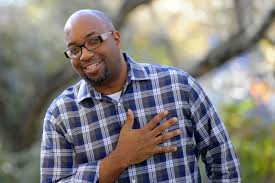 By: Kamichi Jackson It’s National Poetry Month and we’re putting the spotlight on one of the coolest and kid-friendliest writers ever: New York Times Bestselling and Newberry Award-winning author Kwame Alexander. Kwame is currently on tour with his latest release The Playbook, a collection of basketball rules for life. Classrooms and reading groups around the country are praising his book as “inspiring”, “stirring” and “earnest”. But Kwame has been motivating readers long before this most recent release. He comes from a creative family and wrote his very first poem when he was just twelve years old. In college, his love for poetry grew under the guidance of his college professor, award-winning poet laureate Nikki Giovanni. Fast-forward several years, and Kwame has captured the hearts of millions of fans around the world with his twenty-four published books, several of which have won prestigious awards along the way. As much as he loves poetry, though, Kwame doesn’t limit himself to that one form of storytelling. He also writes traditional literature. And since no writer can truly call themselves a writer unless they encourage kids to read and write, Kwame is also an advocate for literacy and creative writing—even holding literacy camps for kids and designing writing curriculum for teachers to use in the classroom. Kwame is a funny, engaging, talented author and educator. Get to know him better during this year’s National Poetry Month by visiting his website at www.kwamealexander.com and following him on tour via Twitter (@kwamealexander). Be sure to check out Kwame's The Playbook through Sweet Blackberry's Amazon Smile offering by clicking on the image below. By: Sweet Blackberry In February, our friends at the Mary Baker Eddy Library in Boston, Massachusetts screened Sweet Blackberry's animated films on Henry "Box" Brown, Janet Collins and Garrett Morgan to their your library go-ers during their "February Vacation Week." Throughout the week, children were able to also able to see the Harvard Passus Stepping team lead a demonstration and learn about historic African American fraternities and sororities, create writer and illustrator Ashley Bryan inspired puppets and even color Jean-Michel Basquiat inspired illustrations. Thanks to the staff at Mary Baker Eddy Library for sharing images of this amazing event with us. These ideas are truly amazing and we deeply appreciate you including Sweet Blackberry among your Black History Month activities. Check out the images from the event below! Later in February, our producer and videographer Kiino Villand spent the morning with the fabulous young dancers of the Debbie Allen Dance Academy, and filmed a class taught by the legend herself. You can see the dancers as well of an exclusive interview with Ms. Allen in Dancing in the Light!
Also in February, select backers of the Janet Collins Kickstarter campaign enjoyed their incentive: A group selected episode of Fresh Prince was screened in the swanky Dick Clark Productions screening room, and on screen siblings Karyn Parsons (Hilary) and Alfonso Ribeiro (Carlton) answered trivia questions and dispelled behind-the-scenes rumors.
In April 2015, we held a launch party featuring the world premiere of Sweet Blackberry’s latest animated short film that celebrates legendary prima ballerina, Janet Collins. Echoing the sentiments of Carmen De Lavallade, notable dancer and Janet’s first cousin, many hearts were full after the screening. Alvin Starks and Aisha Diori were gracious hosts at the Schomburg Center in New York City, and WholeFoods was a generous sponsor. Guests were also excited to meet Yaël Tamar Lewin, author of the 2015 biography Night’s Dancer: The Life of Janet Collins. It’s always fun meeting so many new friends of Sweet Blackberry!
|
Sweet BlackberryBlog Archives
May 2024
Categories |
Sign up for our newsletter!We'd love to keep you updated on our latest projects, partnerships and initiatives.
|
|
Our Mission |
Get Involved |
Activities |
Quick Links |
Sweet Blackberry © 2021. All rights reserved.

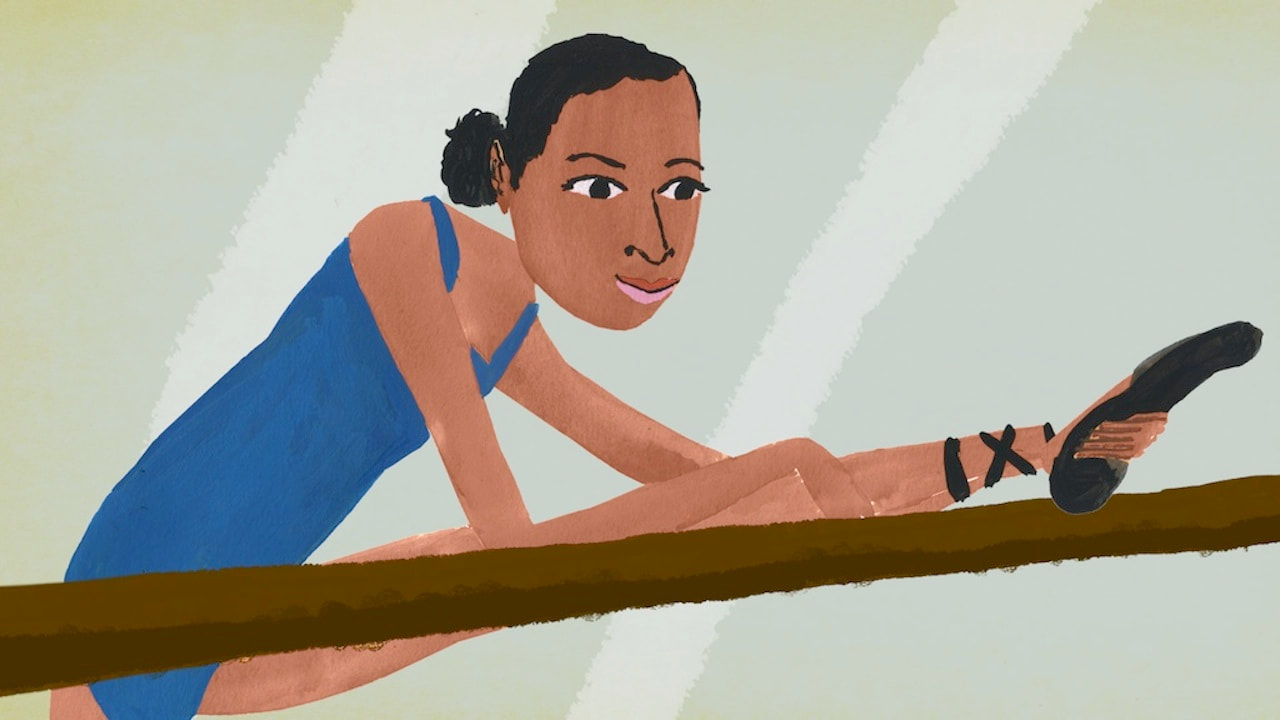
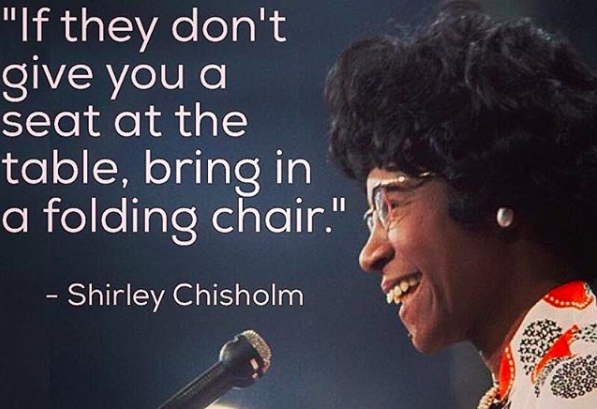
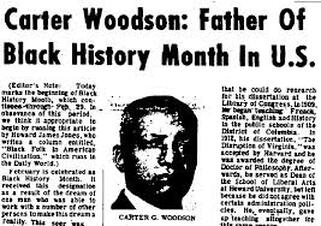
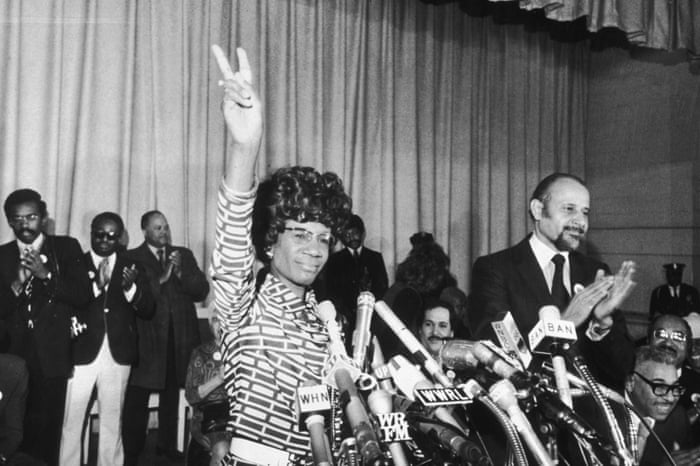
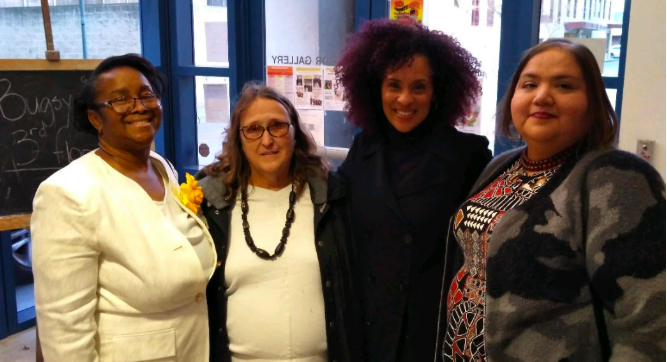
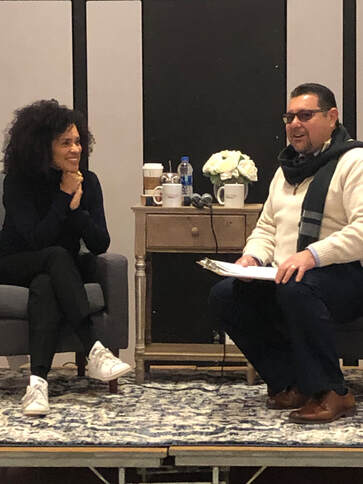
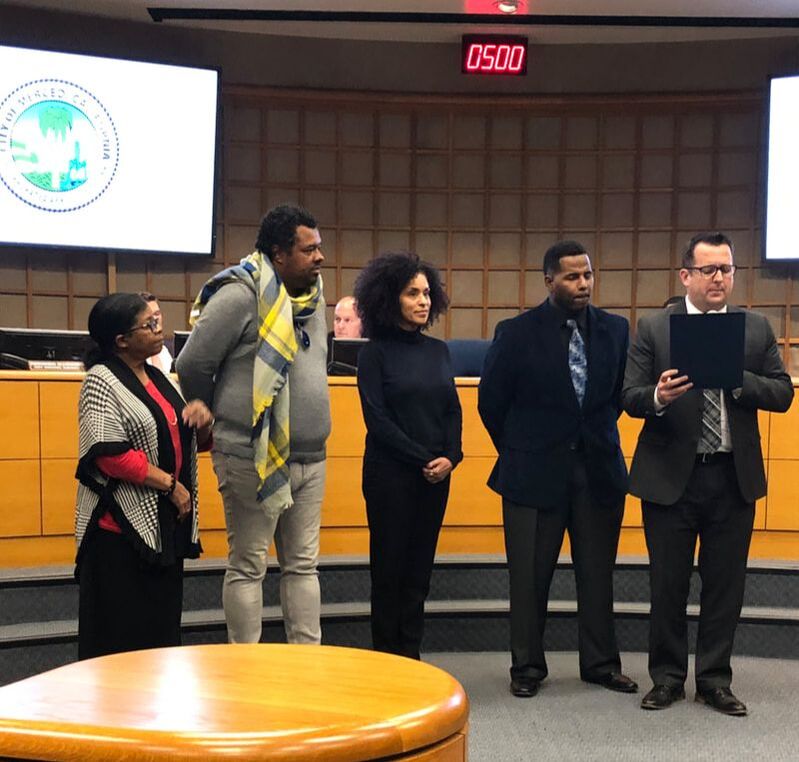
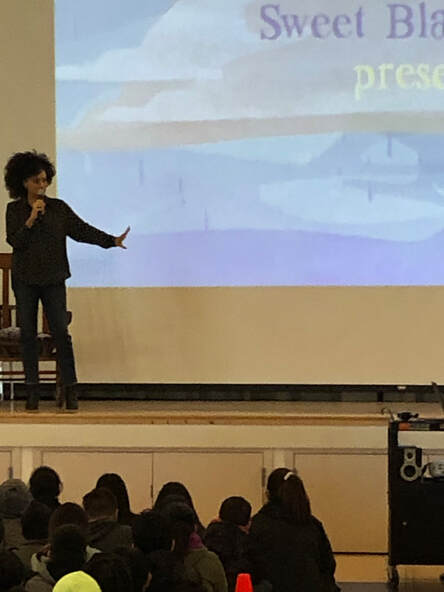
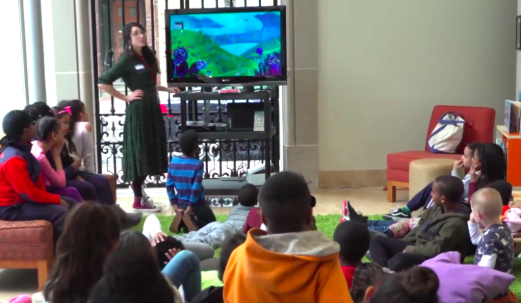
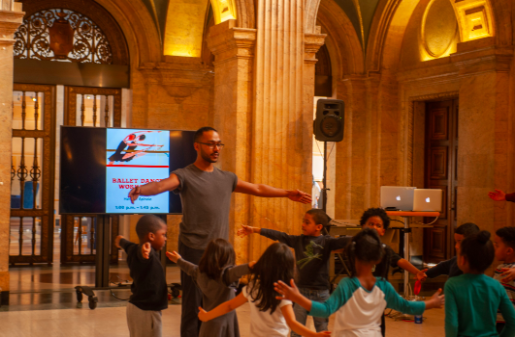
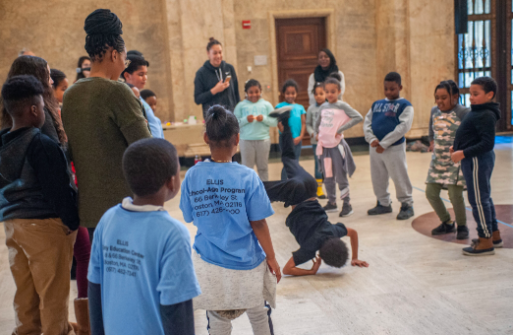
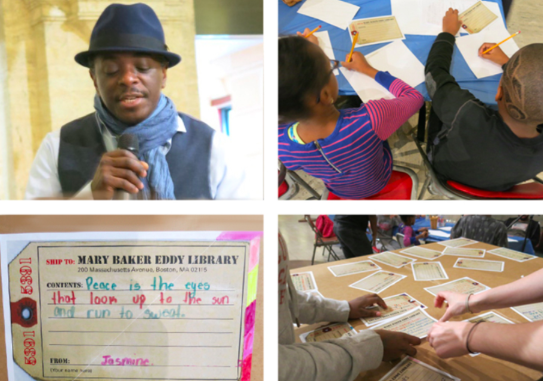
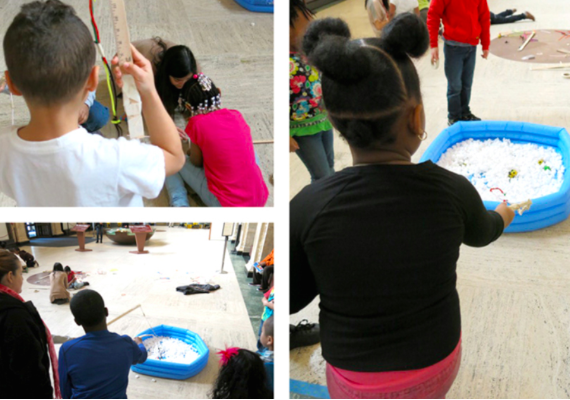
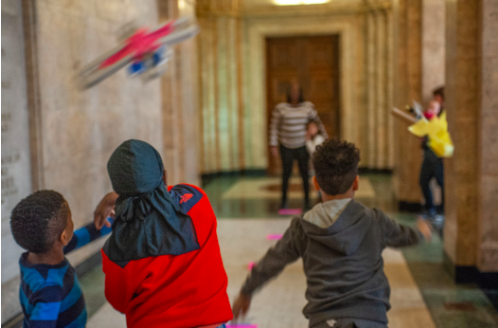
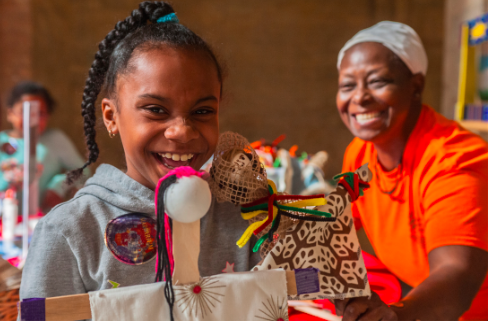
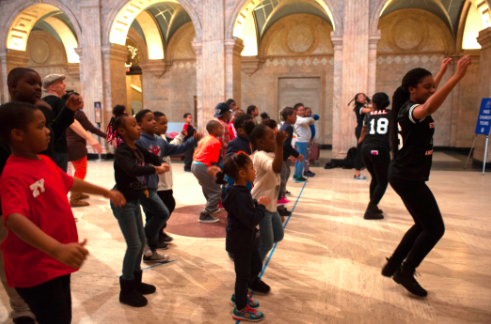
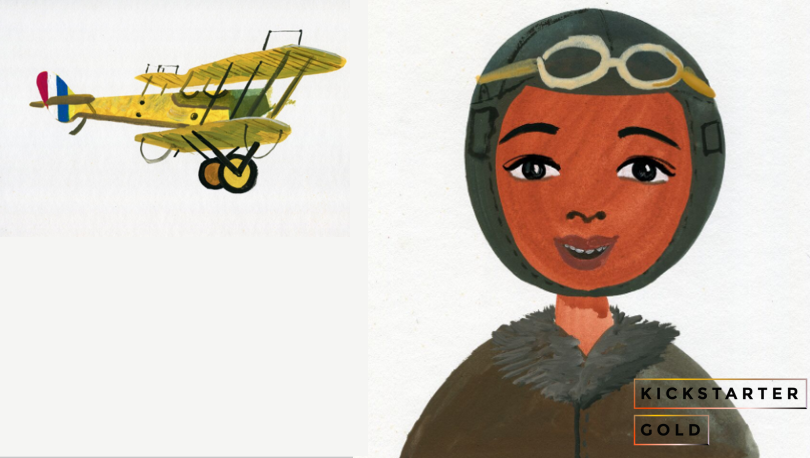
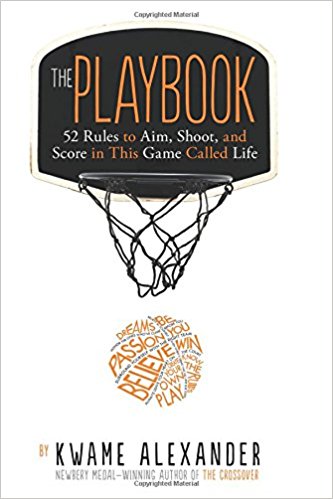
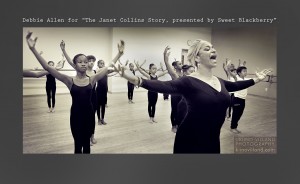
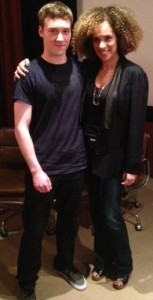
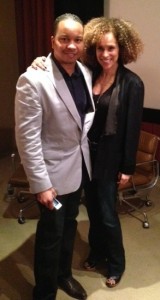
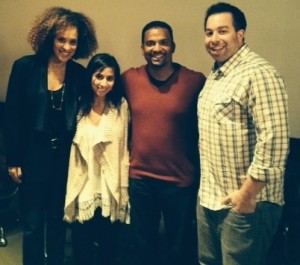
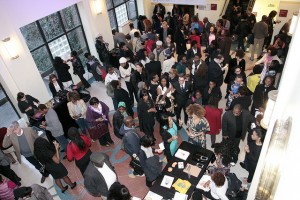
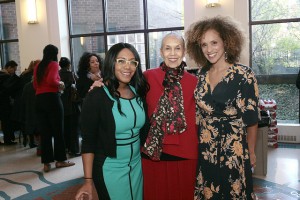
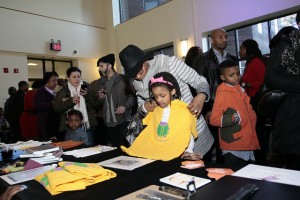
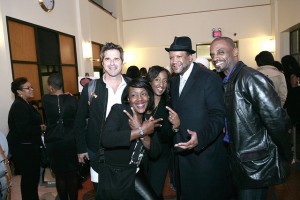
 RSS Feed
RSS Feed